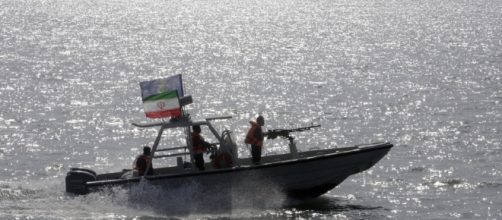The Iranian general Mohammad Hossein threatens the US naval contingent in the Persian Gulf that if provoked, Iran will incur massive destruction to American warships. This is after numerous minor clashes between the US and a few Iranian coast guard vessels recently.
Iran threatens the use of heavily armed speedboats to deliver death and destruction to the US fleet
General Hossein said in an address made in Teheran's Malek Ashtar University that the main weapon of the Iranian navy against the US is its speedboats. These highly agile vessels capable of 110 knots are said to able to destroy modern vessels of the United States in the Persian gulf.
These speedboats, General Hossein added, are agile and can easily hide under the radar as it approaches U.S. vessels. The tough statement made by the general is a response to the perceived antagonistic US stance over the victory of the Islamic revolution in the recent elections in Iran.
What is the US response to Iran naval threats?
US-Iran relations have grown tensed especially during Trump's attack on Assad's forces in Syria, which is an ally of Iran. Aside from this, Trump's stance on Iran strikes concern on the newly elected Iranian regime, especially the possible rescinding of Obama's nuclear deal.
Iran has long been regarded by the US as among the problematic countries in the Middle East.
Its nuclear program, which continues to be a threat to the stability in the region continually tests the diplomatic patience of the United States, especially under the Trump administration.
During Obama's term, the Iran deal was a breakthrough in the diplomatic impasse between the two countries. However, upon Trump's enter into office, the progress with Iran may be in jeopardy.
How will Iran affect US position in the Middle East?
Obama's controversial trade deal with Iran is one of the major achievements that Trump wants to dismantle. Obama's deal entails allowing Iran to continue nuclear energy research with strict sanctions on developing weapons of mass destruction. Obama argues that the deal was a needed compromise to hamper Iran's progress in acquiring the means to develop a nuclear bomb.
Through Obama's deal, Iran will be given limited freedom to manufacture and develop nuclear energy but requires regular inspections coming from the UN to ensure weapons of mass destruction are not being made.
Trump does not favor such a compromise and will most likely renegotiate the deal in favor of the previous sanctions Obama had lifted. For Iran, the new U.S. president is not good news and may spark antagonistic sentiments between the two countries once again.


